Shekhar Gupta is currently the Chairman and Editor-in-chief of The Print. After starting his career as a reporter with The Indian Express, he went on to work as a reporter and then an editor at India Today. He has also been the editor-in-chief of The Indian Express from 1995 to 2014. In this unreserved conversation with Jayali Wavhal, he talks about the evolving idea of journalism and India - based on his experience, the dynamics of print and digital media, the journalistic ideals and principles that he has always braced, while also offering valuable insights to journalists.
Well, I had been in an editorial role for several years in India Today. In 1988, I had become a features editor in India Today. My first editorial responsibilities - besides my reporting and writing - were the sports, book section, and features. Now, Express - by the time I came there, I was still quite young. I was 38. A lot of the people there had been my contemporaries as reporters, so I had to also ease myself into the place. But you know you learn in various places. The skills I had learned as a reporter in The Indian Express, I had not forgotten them. I had taken them to India Today. And what I learned at India Today - by the way of getting more depth for stories, reaching out to more sources, making sure your stories have balance, always listening to the other side – I took them to Express. The other thing that I learned at India Today was to build a newsroom, to build a new young team. And we started that process in Express. It took about three years or so, and when it came up, it became the best team in the country by far. And frankly it remains the best team in the country even now. And I say the best team besides what we have built at The Print. So, we are the second-best, but both in a way have the same rooms.
See, Indian news media is a very crowded place, and it’s a place crowded by market leaders. Not only are they market national leaders like The Times of India for example, but they are also regional market leaders. So, the problem of Express was, it wasn’t the leader anywhere. If you looked at Mumbai, Times of India was the market leader; if you looked at any place in the south, The Hindu is the market leader; in the north, The Tribune is the market leader; if you look at Kolkata and the east, The Telegraph is the market leader. So, the Express was not the market leader anywhere. There was a time when it had the largest net circulation because it had so many editions. But even then, in no center was it the number one.
So now to try and become number one in any center, I figured, was impractical. And even if you calculated the cost it would entail, it was going to be unaffordable. For example, The Times of India has started this business of selling the newspaper for very cheap – Re.1 or 75 paise with some freebies. Invitation price and all that. If we had done that, we would have got popularised, and in a couple of centers I think we were doing it - Chandigarh and Pune. We figured, and this is something you learn on the job, that Express had commanded the share of mind space much bigger than its numbers.
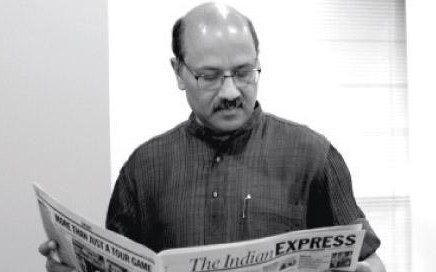 So, what was the lesson? The lesson here was that what decides your numbers, is another set of people called ‘influencers’. Twenty years back, nobody knew the expression ‘influencers’. So, there was this undefined concept for people whose minds matter. If you take that mind space, then other people's numbers don't matter so much. Because then it takes too long to match other people's numbers. But you can outmatch them in mind space. So, at the express we upped our quality, we invested in our journalism, we stopped reducing our cover prices. We started raising our cover prices thinking that we will live with the lower circulation. But anybody who matters in the country should be The Indian Express. And I think, it took a few years, but it got done, and it remains done. And frankly, some of that is what we are doing at The Print as well.
So, what was the lesson? The lesson here was that what decides your numbers, is another set of people called ‘influencers’. Twenty years back, nobody knew the expression ‘influencers’. So, there was this undefined concept for people whose minds matter. If you take that mind space, then other people's numbers don't matter so much. Because then it takes too long to match other people's numbers. But you can outmatch them in mind space. So, at the express we upped our quality, we invested in our journalism, we stopped reducing our cover prices. We started raising our cover prices thinking that we will live with the lower circulation. But anybody who matters in the country should be The Indian Express. And I think, it took a few years, but it got done, and it remains done. And frankly, some of that is what we are doing at The Print as well.
But one essential part of doing that is to make sure that you are unhyphenated - which means you cannot be labeled as left or right, pro-this or anti-that, and at the same time, you don't have to be neutral. Neutral is a news agency. We are never to be a news agency. We take a position on every story, on every issue - based on the facts, as you can find them and check them out. And also based on what you think is right, without any prejudice. You will not always get it right though. You know, even Sachin Tendulkar did not bat at 100%. His average was 53 or 54. Even Donald Bradman did not bat at 100%. So, you are allowed to make a few mistakes as long as those are genuine few mistakes.
Frankly, as I learned the job, as I grew in the job and realized what it meant - I can say that now that I know what it would have entailed, I would not have done it. Because it was too tough, too challenging. I was not designed to be the CEO of a company. It's just that the paper and the company got into a crisis at that point. Vivek Goenka was overseas for various reasons. So, somebody needed to protect the institution. To give you a very simple explanation, I took the second job of a CEO because I loved my job of editor-in-chief too much. And the only way I could keep that job was if the paper would survive. At this point, the only way the paper would survive was if somebody would put his foot in the breach.
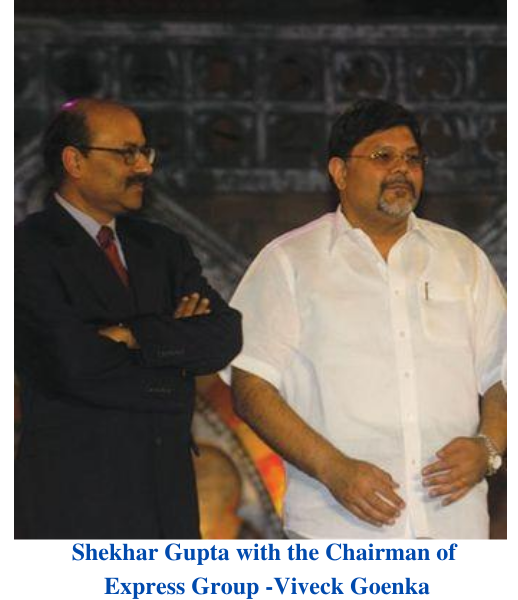 When I took up that responsibility, I did not know the difference between debit and credit. I learned gradually. But I must say there were dilemmas, there were conflicts, and there were free calls. For eg., call to say that we will forget lowering our cover prices. We will now start increasing our cover prices. That circulated revenue should be a particular percentage minimum of our overall revenue. This was very counterintuitive at that point, and a lot of the people in the marketing and sales thought that was a nutty idea. There were risks, but I think the other tension, which is the conflict between the church and the state - the conflict between commercial interests and editorial vision or editorial principles - was present. And I did say at some point that, "look, there is still a Chinese wall between management and the editorial and I am sitting on top of that wall." So, it did not become such a formidable challenge because - I must give credit where it's due - the owner never interfered. The owner never said if you take this decision, we will suffer commercially.
When I took up that responsibility, I did not know the difference between debit and credit. I learned gradually. But I must say there were dilemmas, there were conflicts, and there were free calls. For eg., call to say that we will forget lowering our cover prices. We will now start increasing our cover prices. That circulated revenue should be a particular percentage minimum of our overall revenue. This was very counterintuitive at that point, and a lot of the people in the marketing and sales thought that was a nutty idea. There were risks, but I think the other tension, which is the conflict between the church and the state - the conflict between commercial interests and editorial vision or editorial principles - was present. And I did say at some point that, "look, there is still a Chinese wall between management and the editorial and I am sitting on top of that wall." So, it did not become such a formidable challenge because - I must give credit where it's due - the owner never interfered. The owner never said if you take this decision, we will suffer commercially.
I will give you an example. You will know the story - about 8 -10 years ago, there was a big scandal of paid news in the Maharashtrian press. I think it was during the municipal elections of Maharashtra. So, when that campaign was beginning for that week, I was in Davos. This was in 3rd week of January, and I got a call from my office – my assistant on the corporate side, who works with us now at The Print - and she said, “Look, marketing has a proposal from a particular party to take paid interviews from their candidates in Loksatta - our Marathi paper.” Paid interviews - obviously without the disclosure that these are paid interviews - but these are interviews with candidates and this is Rs. 5 crores or something like that. So, I did not have to think. I did not have to call Vivek Goenka to check. I asked her to say ‘no’. Just to caution me, she said that 5 crores are a million dollars. I said, “Look, say no, and over time, you will realize that it's the best million dollars we lost.”
Now what happened within a month was that this paid news campaign was exposed. P Sainath carried out this expose from The Hindu and elsewhere, about this massive paid news story in the municipal elections in the media in Maharashtra. Only one paper stayed out of it – Loksatta. So, was it worth more than any billion dollars or not?
But if I had a concern at the back of my mind, about what the shareholders will say, what will the owners say – Rs.5 crore is a lot of money for a newspaper, that too 10- 12 years back. But nobody questioned me or asked me anything. You could take your call and ultimately you learn another thing – management. But essentially, my instinct was editorial and nobody interfered with that.
I think other people might have done that. For eg. Arun Purie at India Today. But those are owners. As a professional, yes, I was the only one, the first one. But I had the owners’ full faith and trust, and complete non-interference. That's what it was and I think that time was very tough. But as an old American friend of mine always said, “No matter how tough the times tomorrow, there will be the good old days.” So, we can now tell stories about those days because ultimately it all worked out alright. A great institution -which was greatly in peril in 2000 - by 2008-09 had been secured and consolidated. And by the time I gave up management, it was in a very healthy state. And it is still in a very healthy state. It became debt-free, it had cash in the bank.
I think somebody had asked me once, and I think of this line often after that. Somebody said, “Tum log na to one-hand pe batate ho, na hi on the other hand kuch batate ho. Tum sidha koi cheez ke upar position le lete ho”. So, my response to him was, “Bhai, on the one hand, is The Times of India, on the other hand, is the Hindustan Times. We have to find something else to say.”
The important thing is to look at the facts and look at the facts clinically. If you look at the nuclear deal, and if you have accepted the fact that the cold war had ended then - the cold war had ended 15 years ago and maybe the wrong side won. Because the Indian intellectual discourse was mostly left of center, and mostly anti-American and pro-Soviet. So, mostly the wrong side won, but the Soviets lost the Soviet Union. Now there is a unipolar world. India also has to change accordingly.
The second thing was that there were leaders in India who recognized this. So, Manmohan Singh and Narasimha Rao in 1991 knew (they had intellect) that you cannot open up India's economy to the market and yet continue to be anti-Western forever. So, we saw the nuclear deal as a big strategic shift for India. We never saw the nuclear deal as being about energy or weapons. We saw a nuclear deal about being a strategic mindset shift. It was the first treaty of any kind that India was going to sign with America, and after many decades. This treaty was a strategic treaty. Everybody in any authority knew that this was a good idea. BJP called it a bad idea. Sushma Swaraj said in parliament that this is like Emperor Jahangir allowing East India Company to come and trade in India. But the same BJP, and Sushma Swaraj as foreign minister, embraced the deal and took it forward. So, we knew that these were the facts.
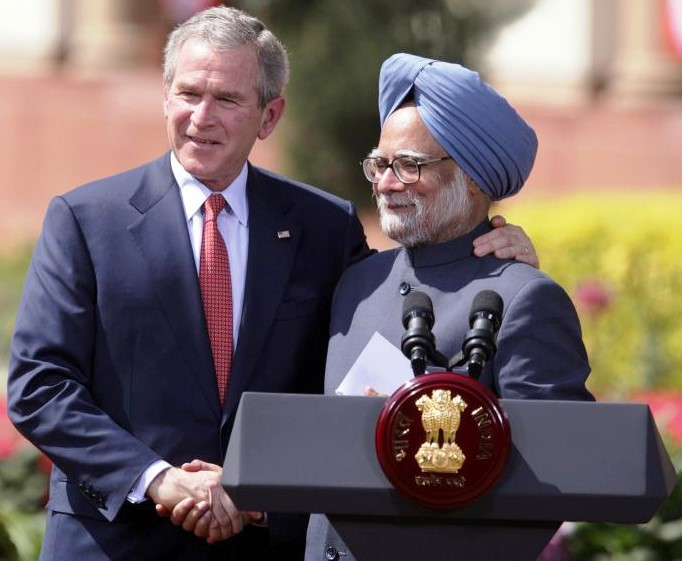 Now a lot of the criticism was coming from old-style mentality, which is, it is fashionable and safe to be anti-American. Funny thing is you see people, who are otherwise nuclear pacifists - who say nuclear weapons are an obscenity - they say, “No, but what will happen? This will compromise India's nuclear weapons.” Now you find the same pacifists saying, “Oh! You are buying these Rafale jets from France. Why are you buying only a few? You should have bought 126”. These are all pacifists, who otherwise don't spend money on defense. They spend on education, spend on this, spend on that. They say give Kashmir to Pakistan; let the Chinese take what they want, stop fighting; let Manipur become independent; let Nagaland become independent; let India be balkanized. The same people are now saying that we need 126 Rafale jets because without that India’s security is in peril.
Now a lot of the criticism was coming from old-style mentality, which is, it is fashionable and safe to be anti-American. Funny thing is you see people, who are otherwise nuclear pacifists - who say nuclear weapons are an obscenity - they say, “No, but what will happen? This will compromise India's nuclear weapons.” Now you find the same pacifists saying, “Oh! You are buying these Rafale jets from France. Why are you buying only a few? You should have bought 126”. These are all pacifists, who otherwise don't spend money on defense. They spend on education, spend on this, spend on that. They say give Kashmir to Pakistan; let the Chinese take what they want, stop fighting; let Manipur become independent; let Nagaland become independent; let India be balkanized. The same people are now saying that we need 126 Rafale jets because without that India’s security is in peril.
So, I have to say this, and this is a line I have used often in my newsroom in the Express and use it at The Print now - as a journalist, we must never switch off our bullshit detector. When I find somebody, who is a lifelong nuclear pacifist, or a lifelong nuclear non-proliferation supporter coming up to say this will compromise India's nuclear weapon, I ignore them. I know where they are coming from.
And the same thing applies to the Anna movement. Because if you saw the Anna movement, it was very elitist. It talked of the poor, but very few participants were poor. They were urban, they were elite and look at the kind of ‘shivji ki barat’ that gathered around them. There were all kinds of people - Prashant Bhushan on the left to Baba Ramdev on the right. There was nothing in common between them except the idea that they should bring down the UPA government. In politics that is okay, it is legitimate for opposition to bring down the government of the day. But these people were not the opposition and their pretense was not that of the opposition. The pretense was of being non-political, and of being anti-corruption activists who had grown interested in politics of power. We said that is wrong. We didn't say that what you are doing is wrong, but only your claim is wrong, and to then say that everything is corrupt.
I wrote two articles at that point, that you can check in my National Interest column titled ‘Arvind Chitra Katha’. It was based on this book called Swarajya that was written by Arvind Kejriwal, giving his concept of swarajya. He had made parallels with Vaishali of 3rd century BC. That's why I said that this is Arvind Chitra Katha. You can't run a modern democracy like Vaishali in the 3rd century BC. And Vaishali spent all its glory on itself until Magadha came over and massacred everybody.
The other article was on the Jan Lokpal bill - you know, everyone was saying Jan Lokpal Bill, but funnily no one had bothered to read it. When I read that bill, I called many people and these TV anchors who were promoting it asking, “Tumne padha hai? Ye Indian constitution mein ho hi nahin sakta!” It is not possible because to say that all Lokpal members will be three Nobel prize winners and four Magsaysay award winners - what kind of constitution allows that? And to say that every neighbor can spy on his neighbor and make CDs of that, send them to Jan Lokpal, then Jan Lokpal will prosecute it, will also try it… appeal, vakil, daleel - sab ek hain!
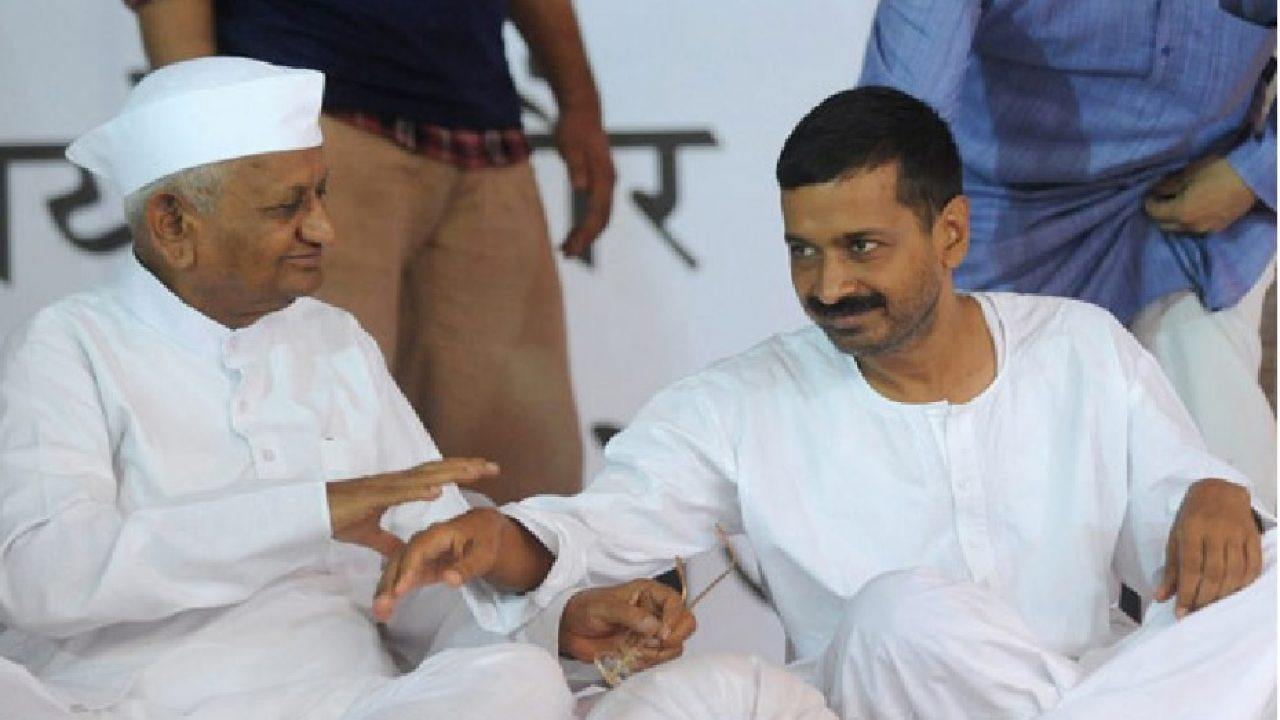 Then 10% of whatever money that was saved from corruption will go to Jan Lokpal, meaning there is a vested interest in convicting everybody. So, this is like North Korea. Every neighbor will be spying on every neighbor. In that article, there are two things: one, buy shares of a company called Moser Baer because they make CDs. Now they are defunct though. Everybody will be making CDs, so there will be a boom in the CD business. Second, buy shares of DLF, Hiranandani, Unitech, all these builders, because if Jan Lokpal Bill comes, they will all be building jails across India. Jail-building in India will become such a big business. In one of the negotiations, that's what Pranab Mukherjee said to these people that, “Look under this constitution, I cannot do it”. So, one of the negotiators on behalf of Anna’s team said that we have come to change the Constitution. Pranab Mukherjee said he doesn't have the mandate to change the constitution. He said, “When you have the mandate, you come and do it”.
Then 10% of whatever money that was saved from corruption will go to Jan Lokpal, meaning there is a vested interest in convicting everybody. So, this is like North Korea. Every neighbor will be spying on every neighbor. In that article, there are two things: one, buy shares of a company called Moser Baer because they make CDs. Now they are defunct though. Everybody will be making CDs, so there will be a boom in the CD business. Second, buy shares of DLF, Hiranandani, Unitech, all these builders, because if Jan Lokpal Bill comes, they will all be building jails across India. Jail-building in India will become such a big business. In one of the negotiations, that's what Pranab Mukherjee said to these people that, “Look under this constitution, I cannot do it”. So, one of the negotiators on behalf of Anna’s team said that we have come to change the Constitution. Pranab Mukherjee said he doesn't have the mandate to change the constitution. He said, “When you have the mandate, you come and do it”.
Where is Jan Lokpal Bill till now? Did anybody make any demand for it? Where is Anna Hazare now? He was Gandhi. We said that Gandhi was always in an argument with himself on whether he was a Mahatma or not. And here is Anna Hazare who does not doubt that he is Mahatma Gandhi. He was a clown, and he had clown written all over him. But if people were willing to be fooled, good luck to them. The same people now look stupid.
The fact is, that for taking this position, there was a lot of opprobrium because people said that you must be so corrupt. But then you need to raise questions. There was a scandal in 2G allocations of 2007. For sure, there was a scandal, but could the money lost be Rs. 1 lakh seventy-six thousand crores. In 2007, this amount was worth $2 billion - more than all of India's defense budget – army, navy, air force, salary, pensions, fighter planes, tanks, submarines, everything put together. Could the value of this much spectrum be more than India's defense budget? So just apply the test of reasoning ability. Those positions came from facts and convictions.
Good reporters. You let good reporters grow, you back them up. When reporters are backed up by selfless editors, and I am not calling myself selfless - my paper gets the glory I get it above. Also, people who work behind the scenes, who make the stories shine, who ask the right questions, and who don't take a byline - those are the ones who are the force multipliers for the reporters. But you first need people on the field. Good reporters who are inquisitive, who are fair, and are also willing to listen to the editors. In each case, and the first one - the Gujarat riots of 2002, the entire team of young reporters did a brilliant job, and we backed them up here. When it was the Bihar flood scam, I think it was George Varghese, who is now with The Hindu. For Modasa and Malegaon blast, it was Smita Nair, who is now The Indian Express's Goa correspondent.
What kind of resources and support should the administrative and editorial section of a newspaper provide the reporters with?
I think the first thing is that if a newspaper management, or owners, accept the basic fact that a newspaper runs on journalism, then resources are not a big challenge. But I think the big problem right now is that people see editorial as content because editorial is not just something that somebody churns out. Editorial has some heart and soul into it. There is something very touchy-feely about the editorial. You have to be sensitive to that. Look at publications like The New York Times - I mean, I can always give the example of publications that I have worked for in India - but look at The New York Times. The owners take care of the commoners, but they also know that the fuel that drives The New York Times, or The Washington Post is their journalism. That is the only product they have to sell.
I think that is where a lot of distortion came into the thinking of media owners - that you can build the brand by selling the newspaper very cheap, by flooding the markets. And if you will keep the market flooded for long enough, you will build a big brand, but you will not build influence - and by influence, I mean it in a positive sense.
Sunday reading has to be different. Sunday does not have that much politics or government. It does not have a regular opinion page. It has a Sunday opinion page of a different type. So, this was to bring in the balance. But basically, that column happened because Coomi was there. That column would not have worked with anybody else because Coomi is such an old-timer. She is very well networked. She also has a good eye for what will be ‘newsy’ and what will be fun, and it continues.
When you resigned from The Indian Express, you wrote a farewell letter and mentioned Gen. Krishnaswamy Sundarji, as our friend and mentor. How has he inspired you and your journalism?
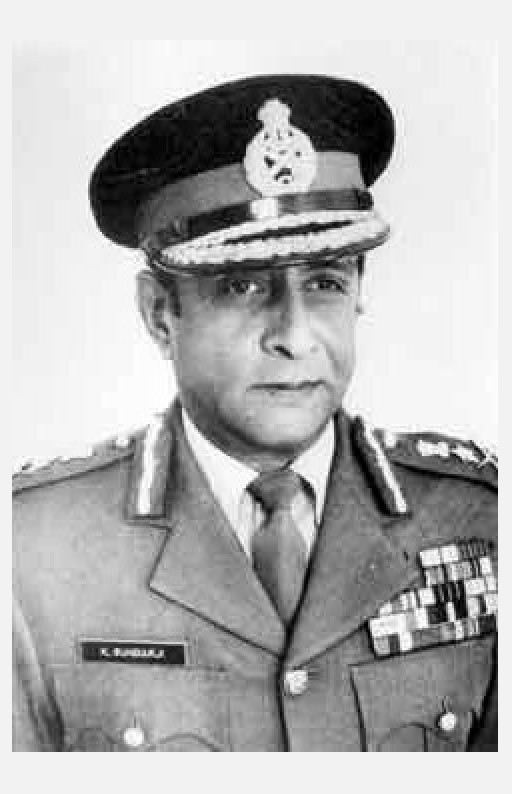 Well, I started knowing him in 1984, during Operation Blue Star. I was then a young reporter, but you know, I spent a lot more time with him after he had retired because we were on many track II conference circuits. And I had the benefit of sitting with him for a long time. This whole idea that what is morale, what is team spirit, what is cowardness, what is courage, was something he shared with me. He gave me the basic lesson that there are no good armies or bad armies, there are only good generals and bad generals; that courage is very infectious as much as cowardice is infectious. Also, that sometimes there is no harm in thinking forward-thinking not of today, but thinking far ahead. And then giving something so much momentum, that the ideas that you believe in – if you give these ideas such a momentum, and set such a course that even after you are gone, those ideas continue. So, I think those are the lessons to learn from him.
Well, I started knowing him in 1984, during Operation Blue Star. I was then a young reporter, but you know, I spent a lot more time with him after he had retired because we were on many track II conference circuits. And I had the benefit of sitting with him for a long time. This whole idea that what is morale, what is team spirit, what is cowardness, what is courage, was something he shared with me. He gave me the basic lesson that there are no good armies or bad armies, there are only good generals and bad generals; that courage is very infectious as much as cowardice is infectious. Also, that sometimes there is no harm in thinking forward-thinking not of today, but thinking far ahead. And then giving something so much momentum, that the ideas that you believe in – if you give these ideas such a momentum, and set such a course that even after you are gone, those ideas continue. So, I think those are the lessons to learn from him.
Was S.P. Singh an inspiration too?
SP and I had become friends. SP was a bit older than me, and this happened around the time I was handling, in addition to my English responsibilities, the language editions of India Today. Now Hindi I know, but Tamil, Telugu, Malayalam, Gujarati - I knew nothing about. So, we developed the concept of an outside consultant to function like an editorial auditor, who read the issues for us and told us what was the quality of the language, what was getting in there, and give us ideas about what to do. So, there we reached out to SP to help us with our Hindi edition. Then we became friends, and then at some point, he started telling me that look you have been covering a lot of these disturbed areas, warzones and all. You have done all that you should, now focus on national politics. I said that I have done several cover stories on national politics, and he would say, no not like that, cover national politics regularly or learn national politics.
When this offer from The Indian Express came, I was very defeated because I was very comfortable in India Today and Express always seemed to be a chaotic place. But SP said that you must go, and if you don't go, then you will keep on going from story to story. But once you go to Express - it is India's pre-eminent political paper and you are interested in politics - you will develop into a political writer, journalist, etc. So, that's a favor he did to me. Without his nudge, I wouldn't have left.
Most journalists who cover political issues and state political opinions receive a lot of flak.
I think there is flak now and then. Over time, people figure out that you don't have an agenda and people figure out that you are not going against one side, or going for one side, or vice versa. So, I think people figure this out over time. There are hazards, but also learning about politics is fascinating. It is SP who first took me to meet Sitaram Kesri when he was Congress President. He was so familiar with Indian politics, caste, and Hindi heartland, that he was a repository of stories on Indian political history. Because politics is a continuum. Politics doesn't end on one day and new politics begins the next day. I think all of that was very fascinating.
Part 3 of this three-part interview can be read here. Part 1 can be read here.
(Kartavya is celebrating its first anniversary on 9th August. On the backdrop of this special occasion, we will publish comprehensive interviews of three renowned editors of English journalism for seven consecutive days starting today, that is, August 9th to August 16th.
N. Ram's interview has been published in three parts and sheds light on the past and present of The Hindu. Naresh Fernandes' interview has been published in two parts and talks about Scroll.in. And lastly, Shekhar Gupta's interview has been published in three parts which will address his career with The Indian Express, India Today, and The Print. Although these editors belong to three different generations and have a differing point of view on some issues, their commitment to the core values of journalism is alike.
The Marathi translation of this interview has been published in the 15th August 2020 edition of weekly Sadhana.)
Tags: shekhar gupta the print the indian express india today interview jayali wavhal journalism Load More Tags

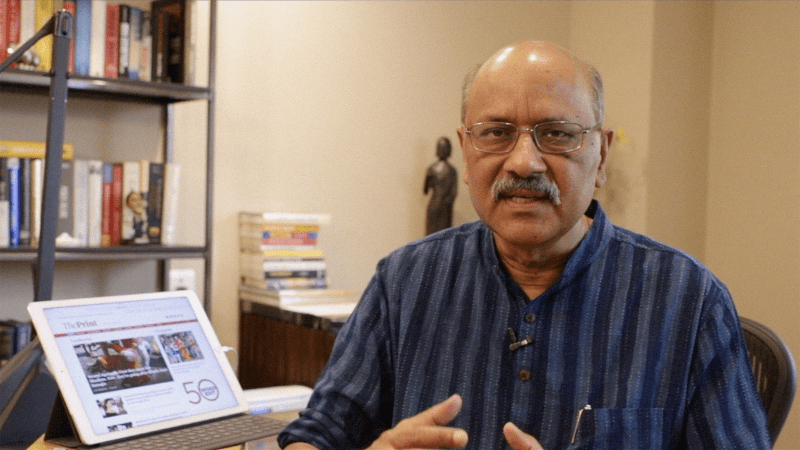
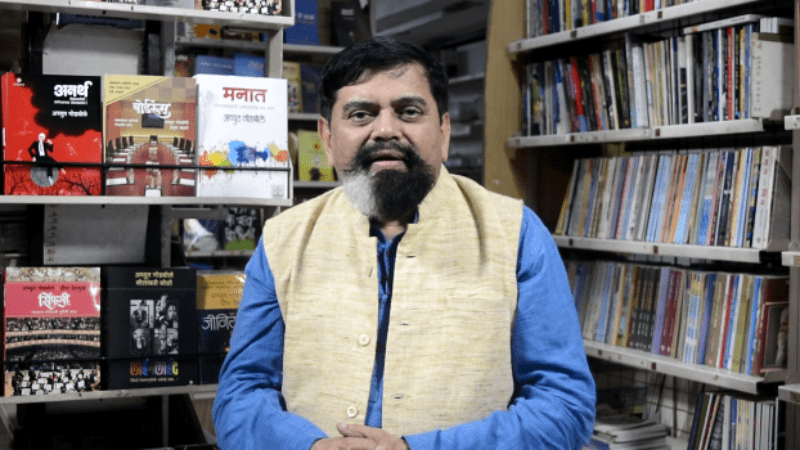
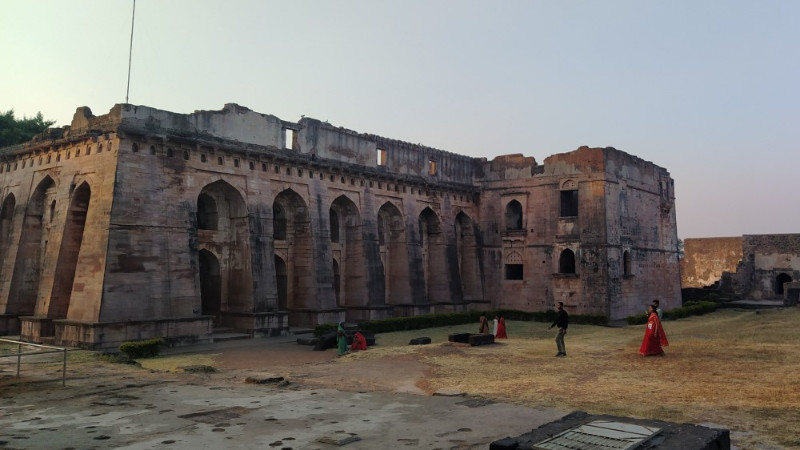

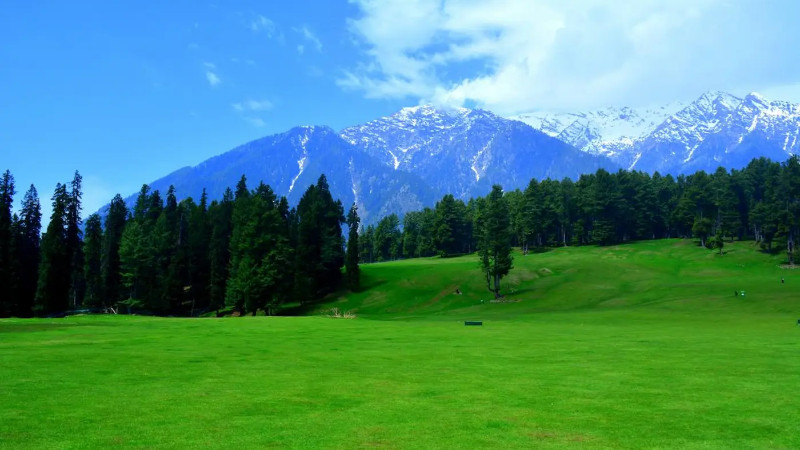
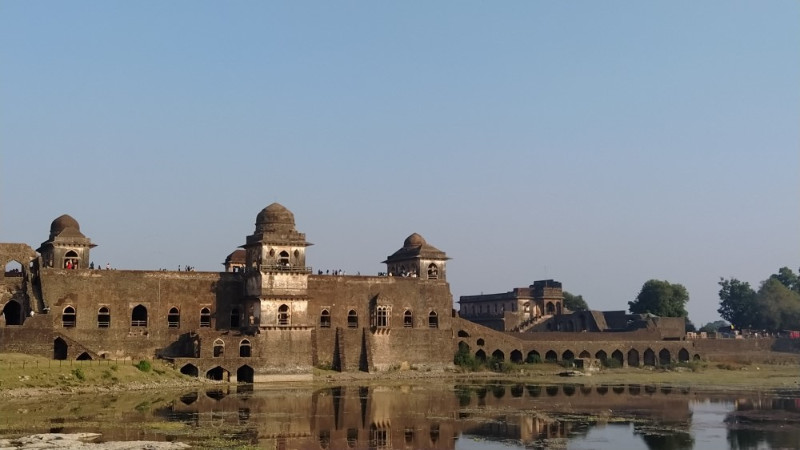
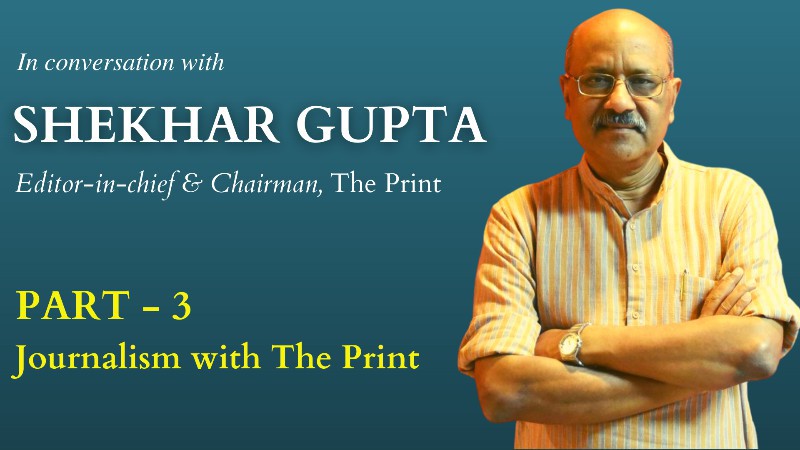
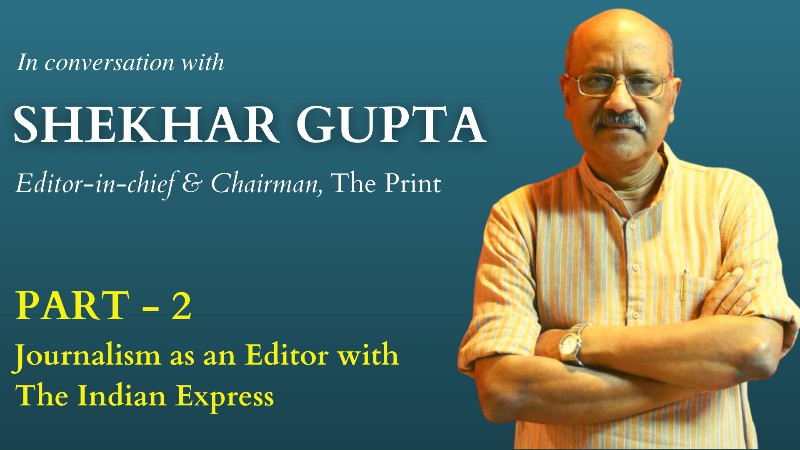
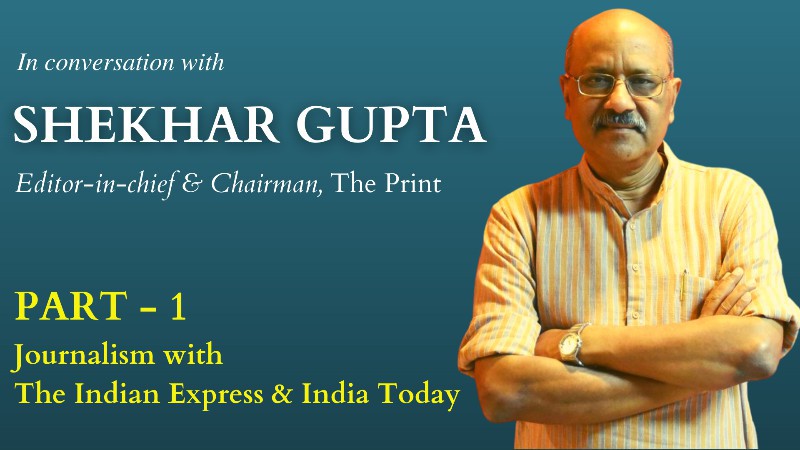
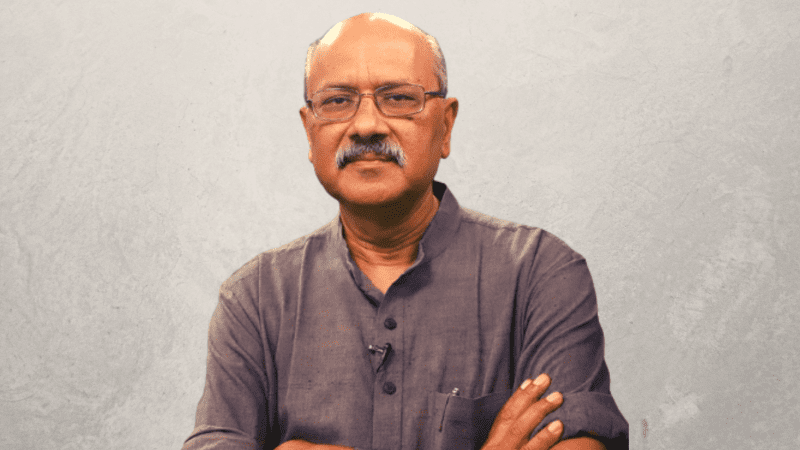
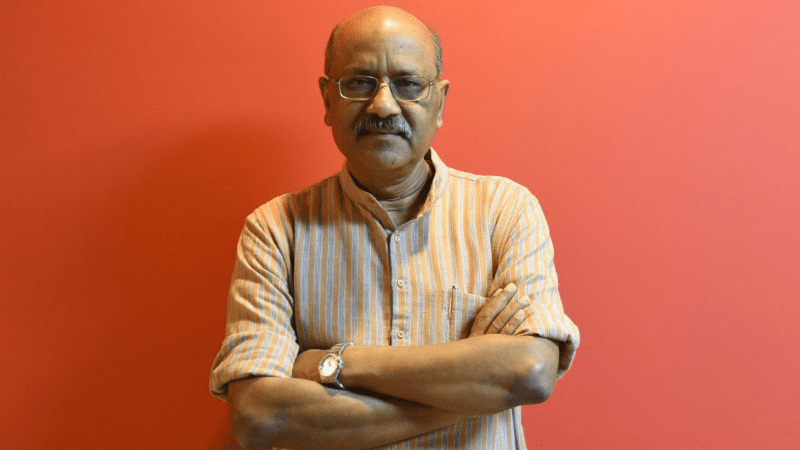

























Add Comment